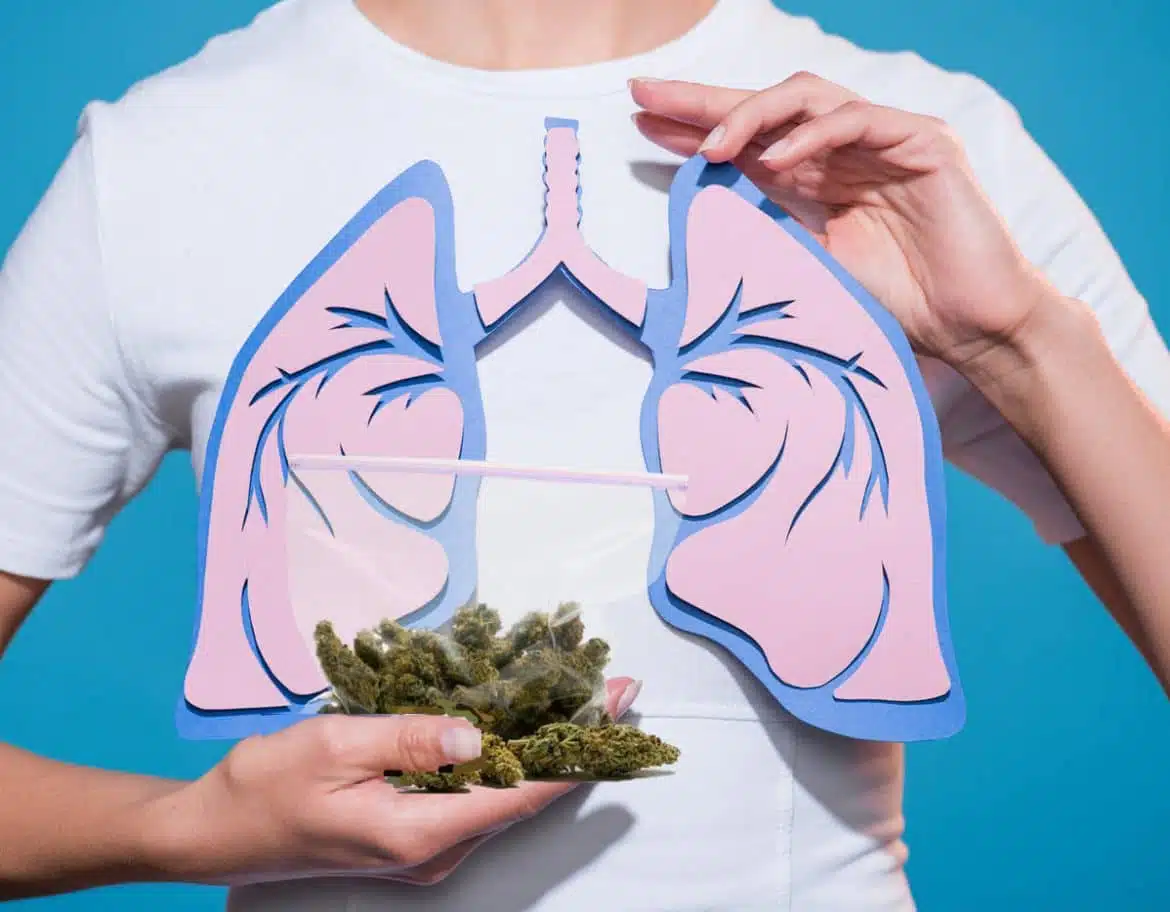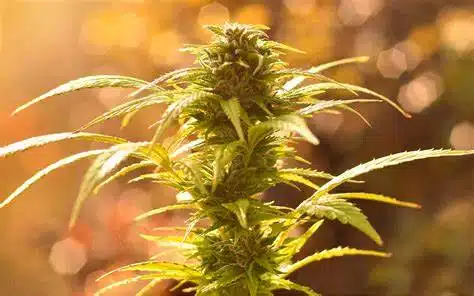Effects Of Weed On Respiratory Health
Hey there, fellow cannabis enthusiasts! Today, we’re diving into a topic that’s crucial for anyone who enjoys the herb: the effects of weed on respiratory health. As much as we love the benefits and joys of cannabis, it’s essential to understand how it can impact our lungs and overall respiratory well-being. In this article, we’ll explore various subtopics related to this subject, shedding light on the potential risks, benefits, and alternatives. So, let’s take a deep breath and get started!
1. The Impact of Smoking Weed on Lung Health
When it comes to consuming cannabis, smoking is one of the most common methods. However, it’s important to recognize that inhaling smoke, regardless of its source, can have adverse effects on our lungs. The combustion process releases harmful substances, such as tar and carbon monoxide, which can irritate the respiratory system and potentially lead to respiratory issues.
2. Alternatives to Smoking Weed for Respiratory Health
If you’re concerned about the impact of smoking on your respiratory health, fear not! There are plenty of alternative consumption methods available. For instance, vaporizing cannabis has gained popularity as a safer option. By heating the herb at lower temperatures, vaporizers produce inhalable vapor without the harmful byproducts of combustion.
3. The Role of CBD in Promoting Respiratory Well-being
CBD, or cannabidiol, is a non-intoxicating compound found in cannabis that has gained significant attention for its potential health benefits. When it comes to respiratory health, CBD has shown promise in reducing inflammation and alleviating symptoms associated with certain respiratory conditions. It’s worth exploring CBD-rich products as a potential aid for maintaining respiratory well-being.
4. The Connection Between Weed Smoking and Chronic Bronchitis
Chronic bronchitis is a condition characterized by persistent inflammation of the bronchial tubes, leading to coughing, excessive mucus production, and shortness of breath. While smoking weed has been associated with an increased risk of developing chronic bronchitis, it’s important to note that individual susceptibility may vary. However, if you’re prone to respiratory issues, it’s wise to consider alternative consumption methods.
5. The Benefits of Using Edibles or Tinctures Instead of Smoking Weed
Edibles and tinctures offer a smoke-free way to enjoy the benefits of cannabis. These products are ingested orally, bypassing the respiratory system altogether. By opting for edibles or tinctures, you can still experience the desired effects of cannabis while minimizing potential harm to your lungs.
6. The Impact of Long-Term Cannabis Use on Lung Function
Long-term cannabis use has been a subject of interest in the scientific community, particularly regarding its impact on lung function. While some studies suggest that heavy, prolonged cannabis smoking may lead to decreased lung function, others have found no significant association. It’s crucial to consider individual factors, such as frequency of use and overall respiratory health, when assessing the potential risks.
7. The Potential Benefits of Using Medical Marijuana for Respiratory Conditions
Medical marijuana has been legalized in many regions, offering potential relief for individuals with respiratory conditions. Certain strains of cannabis may possess therapeutic properties that can help manage symptoms such as inflammation, bronchospasms, and pain. However, it’s essential to consult with a healthcare professional to determine the suitability of medical marijuana for your specific condition.
8. The Impact of Secondhand Weed Smoke on Respiratory Health
Just like tobacco smoke, secondhand weed smoke can have an impact on respiratory health. Breathing in secondhand smoke, even in small amounts, can expose individuals to harmful substances and irritants. If you’re in the presence of someone smoking weed, it’s advisable to ensure proper ventilation or consider moving to a smoke-free environment.
9. The Relationship Between Weed Smoking and Lung Cancer
Lung cancer is a serious concern for smokers, and it’s natural to wonder about the potential link between weed smoking and this disease. While research on this specific association is limited, studies have shown that cannabis smoke contains carcinogens and tar, which are known to contribute to the development of lung cancer. However, more research is needed to establish a definitive connection.
10. The Potential Benefits of Using CBD for Respiratory Conditions
CBD, with its anti-inflammatory and bronchodilatory properties, holds promise as a potential therapeutic option for various respiratory conditions. From asthma to chronic obstructive pulmonary disease (COPD), CBD’s potential benefits in managing symptoms and improving overall respiratory function are being explored. However, it’s crucial to consult with a healthcare professional before incorporating CBD into your treatment regimen.
11. Oxygenation and Energy Levels
One of the primary functions of the respiratory system is to supply oxygen to our body’s cells. Oxygen is necessary for cellular respiration, a process that produces energy in the form of adenosine triphosphate (ATP). When our respiratory system is healthy, it efficiently delivers oxygen to our cells, ensuring optimal energy production. Good respiratory health helps us feel more energetic, alert, and capable of performing daily activities.
12. Removal of Carbon Dioxide
In addition to supplying oxygen, the respiratory system also plays a crucial role in removing carbon dioxide, a waste product of cellular metabolism. Carbon dioxide is transported from our cells to the lungs, where it is exhaled. If our respiratory system is compromised, the removal of carbon dioxide becomes less efficient, leading to a buildup of this waste product in our body. This can result in fatigue, drowsiness, and impaired cognitive function.
13. Lung Function and Physical Performance
Maintaining good respiratory health is particularly important for individuals engaged in physical activities or sports. Our lungs are responsible for taking in oxygen and expelling carbon dioxide during exercise. Regular physical activity helps improve lung capacity and efficiency, allowing us to take in more oxygen and deliver it to our muscles. By keeping our respiratory system healthy, we can enhance our physical performance and endurance.
14. Immune System Support
The respiratory system acts as a defense mechanism against harmful pathogens, such as bacteria, viruses, and allergens. The nose and throat contain tiny hair-like structures called cilia, which help filter out particles and trap them in mucus. The mucus, along with the cilia’s coordinated movements, helps remove these particles from our respiratory tract, preventing them from entering our lungs. A healthy respiratory system strengthens our immune system’s ability to fight off respiratory infections and diseases.
15. Respiratory Health and Quality of Life
Respiratory health directly impacts our quality of life. When our respiratory system is functioning optimally, we can breathe easily and comfortably. On the other hand, respiratory conditions such as asthma, chronic obstructive pulmonary disease (COPD), or allergies can significantly affect our daily activities, limit our physical capabilities, and reduce our overall well-being. By maintaining good respiratory health, we can enjoy a higher quality of life, free from the limitations imposed by respiratory issues.
16. Sleep and Respiratory Health
Respiratory health also plays a crucial role in our sleep quality. Conditions like sleep apnea, characterized by interrupted breathing during sleep, can lead to daytime fatigue, poor concentration, and increased risk of accidents. By maintaining good respiratory health, we can reduce the likelihood of sleep-related breathing disorders and ensure restful, rejuvenating sleep.
17. Long-Term Health Benefits
Taking care of our respiratory health has long-term benefits for our overall health and well-being. Studies have shown that individuals with healthy lungs and respiratory systems have a reduced risk of developing chronic respiratory conditions, cardiovascular diseases, and even certain types of cancer. By adopting healthy lifestyle habits, such as avoiding smoking, reducing exposure to air pollutants, and practicing regular exercise, we can significantly improve our respiratory health and reduce the risk of future health complications.
Maintaining good respiratory health is crucial for our overall well-being and quality of life. From supplying oxygen to our cells and removing carbon dioxide to supporting our immune system and enhancing physical performance, our respiratory system plays a vital role in keeping us healthy and functioning optimally. By adopting healthy lifestyle habits, seeking medical attention when needed, and being mindful of our respiratory health, we can enjoy the benefits of a strong and efficient respiratory system for years to come.
Remember, if you’re looking for high-quality cannabis products, be sure to check out West Coast Releaf Online Dispensary. They offer a wide range of options, including concentrates, edibles, vapes, and more, all delivered right to your doorstep. Take care of your respiratory health and enjoy your cannabis journey responsibly!
18. Structure and Function of the Lungs
The lungs are a pair of spongy, cone-shaped organs located in the chest cavity. They are protected by the rib cage and surrounded by a thin membrane called the pleura. Each lung is divided into lobes, with the right lung having three lobes and the left lung having two. The lungs are composed of millions of tiny air sacs called alveoli, which are surrounded by a network of blood vessels.
The primary function of the lungs is to facilitate the exchange of gases. When we inhale, air enters through the nose or mouth, travels down the windpipe (trachea), and branches into smaller tubes called bronchi. The bronchi further divide into smaller bronchioles, which eventually lead to the alveoli. Oxygen from the inhaled air diffuses into the bloodstream through the thin walls of the alveoli, while carbon dioxide, a waste product, moves from the bloodstream into the alveoli to be exhaled.
19. Oxygenation and Cellular Respiration
The process of oxygenation is crucial for cellular respiration, the process by which our cells produce energy. Oxygen is necessary for the final step of cellular respiration, where glucose is broken down to release energy in the form of adenosine triphosphate (ATP). Without oxygen, our cells cannot efficiently produce energy, leading to fatigue and other health issues.
20. Respiratory Conditions and Lung Health
Maintaining optimal lung health is crucial for preventing and managing various respiratory conditions. Some common respiratory conditions include:
- Asthma: A chronic condition characterized by inflammation and narrowing of the airways, leading to wheezing, coughing, and shortness of breath.
- Chronic Obstructive Pulmonary Disease (COPD): A progressive lung disease that includes chronic bronchitis and emphysema, causing airflow limitation and difficulty breathing.
Taking care of our lungs is crucial for overall health and well-being. Here are some tips to maintain optimal lung health:
- Avoid Smoking: Smoking is the leading cause of preventable lung diseases, including lung cancer and COPD. Quitting smoking or avoiding exposure to secondhand smoke is one of the best things you can do for your lung health.
- Exercise Regularly: Regular physical activity helps improve lung capacity and efficiency. It strengthens the respiratory muscles and enhances oxygen uptake, promoting better lung function.
- Practice Good Posture and Breathing Techniques: Maintaining good posture and practicing deep breathing exercises can help expand the lungs fully and improve lung capacity.
- Protect Yourself from Environmental Factors: Minimize exposure to air pollutants, such as smoke, chemicals, and allergens. Use protective masks when necessary, especially in polluted environments or during activities that involve exposure to harmful substances.
- Stay Hydrated: Drinking an adequate amount of water helps keep the airways moist and facilitates the removal of mucus from the lungs.
- Practice Good Hygiene: Wash your hands regularly to prevent the spread of respiratory infections. Avoid close contact with individuals who have respiratory illnesses.
- Get Vaccinated: Vaccinations, such as the flu vaccine and pneumonia vaccine, can help prevent respiratory infections and complications.
- Seek Medical Attention: If you experience persistent respiratory symptoms, such as coughing, wheezing, or shortness of breath, it is important to consult a healthcare professional for proper diagnosis and treatment.
Conclusion
We’ve covered a range of subtopics related to the effects of weed on respiratory health, shedding light on potential risks, benefits, and alternatives. Remember, while cannabis can offer numerous benefits, it’s essential to be mindful of how it may impact our lungs and overall respiratory well-being. Whether you choose alternative consumption methods, explore CBD-rich products, or consider medical marijuana, make informed decisions that prioritize your respiratory health. Stay educated, stay responsible, and enjoy your cannabis journey!
And don’t forget to check out West Coast Releaf Online Dispensary for a wide selection of high-quality cannabis products. They offer convenient delivery and a fantastic online shopping experience. Happy toking! If you are interested in buying weed online and THC products, check out West Coast Releaf online weed dispensary and shop for your weed online and cannabis products at westcoastreleaf.co!













